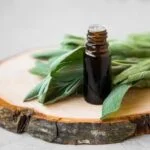Aromatherapy diffusers have become increasingly popular for their ability to disperse essential oils and create a soothing and relaxing atmosphere. In this article, we will compare different types of aromatherapy diffusers available in the market and explore the features, compatibility with essential oils, noise level, coverage area, design, aesthetics, price range, and overall value they offer. Whether you are new to aromatherapy or looking to upgrade your current diffuser, understanding the options available can help you make an informed decision.
Aromatherapy is a holistic healing treatment that uses natural plant extracts to promote health and well-being. The use of essential oils in aromatherapy has been known to have various therapeutic benefits such as stress relief, improved sleep quality, relaxation, enhanced mood, and even boosting mental clarity and focus. Aromatherapy diffusers are designed to disperse these essential oils into the air in a way that maximizes their benefits.
When comparing aromatherapy diffusers, it is important to consider factors such as the type of diffuser (ultrasonic, nebulizing, evaporative, or heat), water capacity, timer settings, automatic shut-off feature, compatibility with different essential oils, noise level during operation especially for use during sleep or work hours, coverage area within a room or space they can effectively disperse oils into the air.
Additionally, the design and aesthetic appeal of each diffuser as well as their price range and overall value must be taken into account when making a comparison.
Keep reading to find out more about how different types of aromatherapy diffusers measure up in these aspects.
Types of Aromatherapy Diffusers
When it comes to choosing an aromatherapy diffuser, there are various types available in the market, each with its unique features and benefits. Understanding the differences between ultrasonic, nebulizing, evaporative, and heat diffusers can help consumers make the right choice based on their specific needs and preferences.
Ultrasonic diffusers use water and ultrasonic vibrations to disperse a fine mist of water and oil into the air. They are popular for their ability to maintain the therapeutic properties of essential oils while also serving as a humidifier.
Nebulizing diffusers, on the other hand, do not require water or heat to operate. Instead, they atomize essential oils into tiny particles that are then released into the air in a concentrated form, making them ideal for quick and potent aromatherapy sessions.
Evaporative diffusers work by allowing essential oils to evaporate into the air through a fan or natural air flow. They are often compact and portable, making them suitable for use in smaller spaces or while traveling. Heat diffusers utilize heat to gently release the aroma of essential oils into the air. While they may alter the chemical composition of some oils due to heat exposure, they are still popular for their simplicity and effectiveness.
In comparing these different types of aromatherapy diffusers, it’s important for consumers to consider factors such as ease of use, maintenance requirements, scent intensity control, and overall performance in order to make an informed decision that aligns with their preferences and lifestyle.
| Diffuser Type | Operation | Main Features |
|---|---|---|
| Ultrasonic | Uses water and ultrasonic vibrations | Maintains therapeutic properties of essential oils |
| Nebulizing | Atomizes essential oils without water or heat | Produces concentrated aroma for potent aromatherapy sessions |
| Evaporative | Allows oils to evaporate through fan or natural air flow | Compact size and portability |
Features to Consider
When comparing aromatherapy diffusers, it is essential to consider the features that can enhance the overall user experience. One of the key features to look at is the water capacity of the diffuser. The water capacity determines how long the diffuser can run before needing a refill. A larger water capacity means longer runtime and less frequent refills, making it ideal for those who want continuous diffusion without interruptions.
Another important feature to consider is timer settings. Some aromatherapy diffusers come with preset timer options, allowing users to control the duration of diffusion. This feature can be beneficial for those who prefer intermittent diffusion or want to conserve essential oils by limiting their usage.
Additionally, automatic shut-off is a crucial feature for safety and peace of mind. This feature ensures that the diffuser turns off automatically when it runs out of water, preventing any potential hazards or damage. It also promotes energy efficiency and prolongs the lifespan of the diffuser.
When conducting an aromatherapy diffuser comparison, it is vital to prioritize these features to find a diffuser that suits individual needs and preferences. Each feature contributes to the convenience, functionality, and safety of using an aromatherapy diffuser in daily life.
Aromatherapy Oils Compatibility
When it comes to using aromatherapy diffusers, the choice of essential oils can greatly impact the overall experience. Each type of diffuser may work best with certain types of essential oils, and understanding this compatibility is crucial in making the right choice for your needs.
Diffuser Types and Essential Oils
Different diffuser types have varying methods of dispersing essential oils into the air. For example, ultrasonic diffusers use water to disperse the oil as a fine mist, while nebulizing diffusers break down the oil into very small particles for direct dispersion. It’s important to consider which type of essential oil you prefer to use and how it will interact with the specific design of each diffuser.
Oil Volatility and Evaporation
Certain essential oils are more volatile than others, meaning they evaporate at a faster rate. This can affect their compatibility with different diffuser types. For example, heat diffusers may not be suitable for delicate or lighter oils that can be altered by heat, while these oils may work well with ultrasonic or nebulizing diffusers that do not rely on heat to disperse the scent.
Aromatherapy Goals and Personal Preferences
Consider your aromatherapy goals and personal preferences when choosing a diffuser based on oil compatibility. If you have specific therapeutic benefits in mind, such as relaxation or energy stimulation, certain essential oils may be better suited for achieving those goals with specific diffuser types. Additionally, personal preferences such as scent intensity and longevity should be factored in when comparing aromatherapy diffusers based on oil compatibility.
Noise Level
When comparing aromatherapy diffusers, one crucial factor to consider is the noise level produced by each type of diffuser. This is particularly important for individuals who plan to use the diffuser during sleep or work, where a quiet environment is preferred. Here’s a breakdown of the noise levels for different diffuser types:
- Ultrasonic Diffusers: These diffusers are known for their whisper-quiet operation, making them an excellent choice for bedrooms, offices, or other quiet spaces. The ultrasonic technology produces a fine mist without generating much noise, allowing users to enjoy the benefits of aromatherapy without any disruptions.
- Nebulizing Diffusers: While nebulizing diffusers are effective in dispersing essential oils, they tend to produce more noise compared to ultrasonic diffusers. The process of turning essential oils into fine particles can result in a consistent but audible hum, which may not be suitable for those sensitive to sound during sleep or work.
- Evaporative Diffusers: These diffusers use a fan to evaporate essential oils into the air. While they are generally quieter than nebulizing diffusers, the sound of the fan might still be noticeable in quiet environments. However, this noise level may not be as bothersome for individuals who are less sensitive to background sounds.
- Heat Diffusers: Heat diffusers typically operate silently since they do not require any mechanical parts or electric components. However, the use of heat to disperse essential oils may alter their therapeutic properties, so it’s essential to weigh the noise level against potential changes in oil effectiveness.
Ultimately, when considering aromatherapy diffuser options, it’s important for consumers to prioritize their preferences regarding noise levels based on their specific usage scenarios.
Coverage Area
When comparing aromatherapy diffusers, it’s essential to consider the coverage area of each type. The coverage area refers to the space that a diffuser can effectively cover with its aroma and therapeutic benefits. Here are the coverage areas of different types of aromatherapy diffusers:
- Ultrasonic Diffusers: These diffusers are ideal for small to medium-sized rooms, typically covering an area of 200 to 400 square feet.
- Nebulizing Diffusers: Known for their potent and direct dispersal of essential oils, nebulizing diffusers can cover larger spaces, ranging from 300 to 800 square feet.
- Evaporative Diffusers: These diffusers are best suited for personal use or small spaces, providing coverage for areas up to 150 square feet.
- Heat Diffusers: With their simple and effective operation, heat diffusers cover smaller areas, usually up to 100 square feet.
The coverage area of an aromatherapy diffuser is crucial in determining its effectiveness in dispersing essential oils throughout a room or space. For larger areas like living rooms or offices, a nebulizing diffuser would be more suitable due to its wider reach. Conversely, smaller spaces such as bedrooms or bathrooms may benefit from an ultrasonic or evaporative diffuser.
It’s important to note that using a diffuser with a coverage area that is too large for the space may result in an overpowering scent, while using one that is too small may not effectively disperse the aroma throughout the entire area. Therefore, understanding the coverage area of each type of diffuser is vital in choosing the right one for your specific needs.
When conducting an aromatherapy diffuser comparison based on coverage area, it’s crucial to consider the size and layout of the intended space where the diffuser will be used.
Design and Aesthetics
When considering an aromatherapy diffuser, it’s important to take into account not just its functionality but also its design and aesthetic appeal. The design of a diffuser can greatly impact the overall ambiance and style of a room, making it an essential factor to consider when comparing different options in the market.
Size and Shape
The size and shape of an aromatherapy diffuser can play a significant role in how well it fits into your space. For those with limited surface area, a compact and sleek design may be more ideal, while larger rooms may benefit from a diffuser with a more substantial size and presence. Additionally, the shape of the diffuser can also contribute to its visual impact, with options ranging from minimalist geometric designs to elegant organic forms.
Material
The material of the diffuser not only affects its durability but also contributes to its overall aesthetic. Common materials used for diffusers include plastic, wood, glass, and ceramic. Each material has its own unique look and feel, allowing you to choose one that best complements your interior style.
As aesthetics are subjective, it’s essential to consider the overall design and aesthetic appeal of each aromatherapy diffuser when comparing options in the market. Finding a diffuser that not only aligns with your personal style but also enhances the visual appeal of your space can elevate the entire aromatherapy experience.
Price and Value
In conclusion, when it comes to choosing the right aromatherapy diffuser, it is important to consider a variety of factors in order to make an informed decision. The market offers a wide range of diffusers, each with its own set of features and benefits.
From ultrasonic to nebulizing diffusers, each type has its own advantages and considerations. When conducting an aromatherapy diffuser comparison, it is crucial to pay attention to features such as water capacity, timer settings, automatic shut-off, noise level, coverage area, design and aesthetics, as well as price and value.
One of the key factors to keep in mind is the compatibility of different aromatherapy oils with various diffuser types. Some oils may work better with certain types of diffusers, influencing the overall experience and effectiveness.
Additionally, considering the noise level can be significant for users who plan on using their diffuser during sleep or work. Moreover, coverage area is another important aspect to consider as it directly affects how effectively the aromatherapy oils are dispersed throughout a room or space.
When evaluating price and value, it is essential to weigh the cost against the features offered by each diffuser. While some may be more budget-friendly, others may offer additional benefits that justify a higher price point.
Longevity and user satisfaction should also be taken into account when deciding on which aromatherapy diffuser to invest in. Ultimately, conducting an aromatherapy diffuser comparison can help individuals find the perfect option that best fits their needs and preferences for enjoying the benefits of aromatherapy at home or in any space they desire.
Frequently Asked Questions
Which Aroma Diffuser Is the Best?
The best aroma diffuser ultimately depends on your specific needs and preferences. Consider factors like room size, noise level, runtime, and aesthetic appeal when choosing the best diffuser for you.
What Are the Top 5 Diffusers?
Some top aroma diffusers on the market include the URPOWER Essential Oil Diffuser, InnoGear Aromatherapy Diffuser, VicTsing Essential Oil Diffuser, ASAKUKI Essential Oil Diffuser, and the Homasy Essential Oil Diffuser. These diffusers are popular choices due to their performance and features.
How Do I Choose an Aromatherapy Diffuser?
When choosing an aromatherapy diffuser, consider factors such as the size of the room you want to use it in, your preferred style or design, the type of essential oils you want to use with it, how long you want it to run, and any additional features you may desire like LED lights or a timer.
Researching different types of diffusers and reading reviews can also help inform your decision.

Are you looking for a natural way to improve your health and wellbeing?
If so, aromatherapy may be the answer for you.





